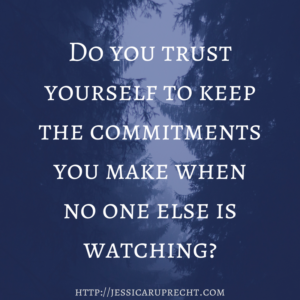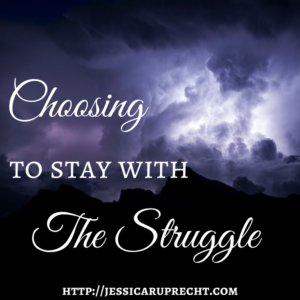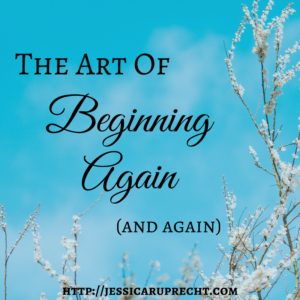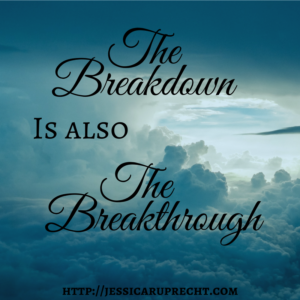Today in Boston everything feels different. The city is slowly drawing to a close. Schools are closing. Colleges are sending (or have already sent) students home for the rest of the semester as campuses empty out. The grocery stores are bare of eggs and milk and anything canned or frozen.
Today in Boston everything feels normal. No one I know is sick. Our case totals of COVID-19 are growing, but so far the numbers remain small. Access to testing is still very limited so there may be many more cases that we do not know about, but for now the official totals are reassuring. The state of Massachusetts has not yet recorded its first death from COVID-19, which is also reassuring.
Today I am settling in for the long haul. I have been instructed to work from home as much as possible in the coming weeks and have no plans to return to the office for the foreseeable future. Very happily my job can be performed remotely and I have adequate paid sick leave and good health insurance so I am already so much luckier than so many here in Boston and around the world.
Today in Boston everything is okay, and yet I know that very soon it probably won’t be. An epidemic is a slow moving crisis that seems okay a while and then suddenly isn’t. Here in Boston we’re still waiting for that tipping point to arrive and until it does we won’t have a good idea how bad things are going to get. Right now the disease is spreading slowly and silently and in the absence of mass testing there’s really no way to know how far it has spread until people are gravely ill.
Today I’m finding myself restless. Perhaps today you are feeling restless, too. Perhaps your restlessness is an attempt to quell a thinly veiled sense of worry or panic. Perhaps mine is, too.
All of my routines have been upended. I won’t be going to ballet classes again for the foreseeable future. I won’t be going to restaurants or to the movies. I have had to choose which doctor’s appointments to keep and which to jettison as I try to balance the importance of keeping myself healthy in other ways with the risk of contracting COVID-19 and possibly spreading it to others.
Social distancing doesn’t require total isolation but it does mean far fewer contacts with people. I’m trimming my social circle back to just a couple of the most important people. Everyone else will be transitioned to digital-only interactions. Many of my loved ones are already remote, so we will be talking on the phone more often and caring for each other from a distance.
Today I am grateful to live with a roommate who is also one of my dearest friends, rather than a quasi-stranger from Craigslist who I only vaguely tolerate. Living with a good friend feels like a blessing always, but especially in light of the weeks of close quarters that likely lie ahead of us.
I’m also grateful that modern technology makes it possible to connect with the people who matter to me remotely, so that we do not have to gather in person to feel a part of a community in quite the same way as was true before cell phones and the internet made it so much easier to be together from afar.
In just a few short days COVID-19 has changed life from normal to different. Today we are struggling to patch together new routines. We are trying to learn how to stay emotionally and physically healthy when we are trapped indoors in ways that we are not accustomed to.
I too am struggling with these things and so I don’t pretend to have answers for you. The only thing I know is that it is okay to find this transition disorienting and to struggle to find a new equilibrium. It’s okay to feel restless and anxious and scared for our loved ones who are most at risk and sad for the trips that were cancelled and the activities that we have had to give up.
My plans for the coming weeks involve:
- Enjoying as many remote interactions with people as I can.
- Doubling down on my at home yoga practice, as well as adding other forms of at-home fitness to my daily routine. It’s really important for my wellbeing that I don’t just sit on the couch all day.
- Deep cleaning the apartment, doing some mending, and otherwise getting to all the nagging chores that I always mean to do but never have time for.
- Writing more — especially working more on my memoir, which I’ve been working my way through re-reading in preparation for beginning work on the second draft.
- Reading more — I have a huge backlog of books on my kindle that are waiting for me so I’m excited to put a dent in my list.
If you’re looking for books to read while you’re in lockdown, here are some books I’ve read and loved in the past year: City of Girls by Elizabeth Gilbert, The Bear & The Nightingale by Katherine Arden, Spinning Silver by Naomi Novik, The Warmth of Other Suns by Isabel Wilkerson, and Freshwater by Akwaeke Emezi.
Plus a few of the books I’m looking forward to reading while I’m stuck at home: The Yellow House by Sarah Broom, Nothing to See Here by Kevin Wilson, On Earth We’re Briefly Gorgeous by Ocean Vuong
There are also some things I will be doing less of:
- I’m limiting how much time I spend reading the news. I want to read enough to stay informed, but not enough to induce panic. I will also be limiting myself to just a few reputable sources: one source for local news and one or two national papers.
- I’m limiting social media (especially Facebook). I won’t be pulling off of social media altogether because some of it is good for me. I get updates from loved ones in my extended network on social media and my women’s memoir writing circle has a group there which is lovely and nourishing. But also: I will be temporarily muting anyone who shares too many articles about coronavirus or otherwise fills my news feed with fear.
Most of all, I’ll be trying to shape my life in a way that allows me to remain healthy and sane and well-rested so that I can do my part to keep everyone safe by staying home and continuing to do good work and checking in on my loved ones.
I share this list not because I think that these ideas will be exactly right for anyone else, but because we should all be making plans for a lockdown now. And while most of us have thought to stock up on toilet paper, food, disinfecting wipes, cold medicine, and any prescription medications, we have perhaps not thought about how we will need to reshape our routines in order to keep ourselves sane and healthy through the worst of the outbreak.
But this is important work, too — much more important than refreshing the news one more time to see what the latest infection counts are.
In addition to taking care of myself, I am also going to be looking for ways to donate financial resources to those who will be most affected by the coronavirus. As businesses close there are going to be many in Massachusetts and around the world who won’t be able to make rent payments or afford groceries. The economic fallout of the shutdown is going to be devastating for so many. As someone who is lucky enough to have financial resources and to be earning a paycheck during the outbreak, I’m looking for ways to give back some of my surplus. If you know of or hear about organizations doing much needed relief work during the outbreak, please hit reply and send suggestions my way!
Wherever you are reading this, I hope that you are well and that you are safe and that you have food and shelter and health insurance and paid sick leave and all of the things that human beings deserve. And if you do not have those things and are frightened or scared then my heart goes out to you. If there’s any way that I can help, please hit reply and let me know. We all need each other more than ever right now — even as we remain socially distant and physically far apart.
Much love,
Jessica
 It has been many months since I have written. There are so many reasons for my long silence that it seems foolish to try and catalog them all. Some of them are health-related: my health reached a new low late last summer which was good in some ways and bad in others. On the good side, I got some useful diagnosis and treatments. On the downside, it has been nearly a year and I’m still not really
It has been many months since I have written. There are so many reasons for my long silence that it seems foolish to try and catalog them all. Some of them are health-related: my health reached a new low late last summer which was good in some ways and bad in others. On the good side, I got some useful diagnosis and treatments. On the downside, it has been nearly a year and I’m still not really  Here’s an often unwelcome, but ultimately unavoidable truth: sometimes life is just hard.
Here’s an often unwelcome, but ultimately unavoidable truth: sometimes life is just hard. The truth is this: I don’t think I’ve written anything more serious than a journal entry in almost six months (not counting academic publications, that is).
The truth is this: I don’t think I’ve written anything more serious than a journal entry in almost six months (not counting academic publications, that is). Years ago at a college party someone remarked to me that drunk people walk like this: fine, fine, fine, fine — oh sh*t, falling. Parties were really never my scene, but that image stuck with me and I remember it to this day because it seemed like a really good metaphor.
Years ago at a college party someone remarked to me that drunk people walk like this: fine, fine, fine, fine — oh sh*t, falling. Parties were really never my scene, but that image stuck with me and I remember it to this day because it seemed like a really good metaphor.